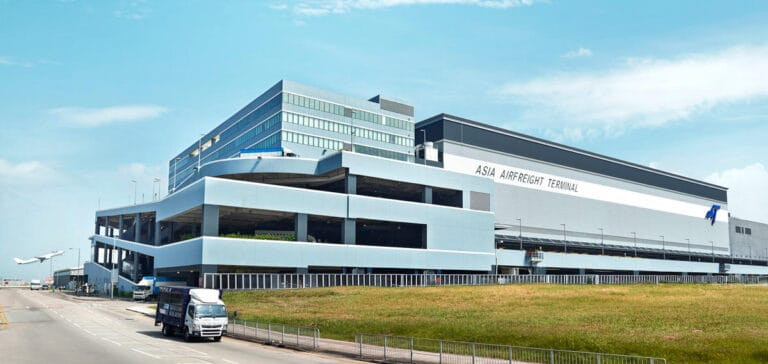-
Asia Airfreight Terminal (AAT), a SATS Ltd subsidiary, named “Sustainable Warehouse Operator of the Year 2025” by the Freightweek Sustainability Awards.
-
Reduce carbon emissions by 55 percent by 2035 and reach net-zero by 2050 (baseline 2018). Already achieved a 33 percent reduction in carbon footprint.
-
CEO statement: Mike Chew emphasised sustainability as a “continuous journey” built on innovation and community wellbeing.
Asia Airfreight Terminal (AAT), a subsidiary of SATS Ltd, has been named “Sustainable Warehouse Operator of the Year 2025” by the Freightweek Sustainability Awards, which recognise global excellence in environmental leadership across the logistics sector.
This recognition reaffirms AAT’s commitment to climate action and its role in shaping sustainable logistics practices. AAT’s climate initiatives are aligned with its ambitious targets to reduce carbon emissions by 55 percent by 2035 and to achieve net-zero by 2050, with 2018 as the baseline year. To date, the company has achieved a 33 percent reduction in carbon footprint.
Mike Chew, CEO of AAT, remarked, “Sustainability is a continuous journey. AAT is committed to leading with purpose, embracing innovation, and setting industry benchmarks that support both business growth and community wellbeing.”
Key initiatives include the electrification of its vehicle fleet – making AAT the first cargo terminal operator in Hong Kong to deploy electric autonomous tractors for terminal operations – with full electrification planned by 2030 and supporting infrastructure upgrades underway.
The adoption of HVO fuel by end-2025 will provide a sustainable interim solution, while ongoing LED lighting upgrades have reached over 90 percent coverage across facilities, generating significant energy and carbon savings.
In waste and resource management, AAT has reduced waste by 32 percent since 2018, expanded its recycling infrastructure, and launched creative initiatives such as uniform upcycling through social enterprise to support underprivileged communities. The company has also increased the recycled content in its plastic cargo cover sheets to 50 percent, promoting circular material use.




